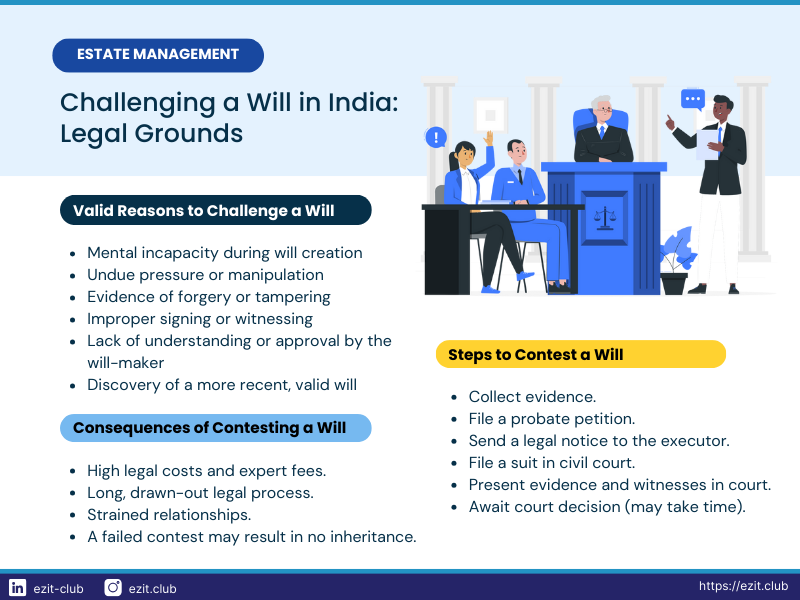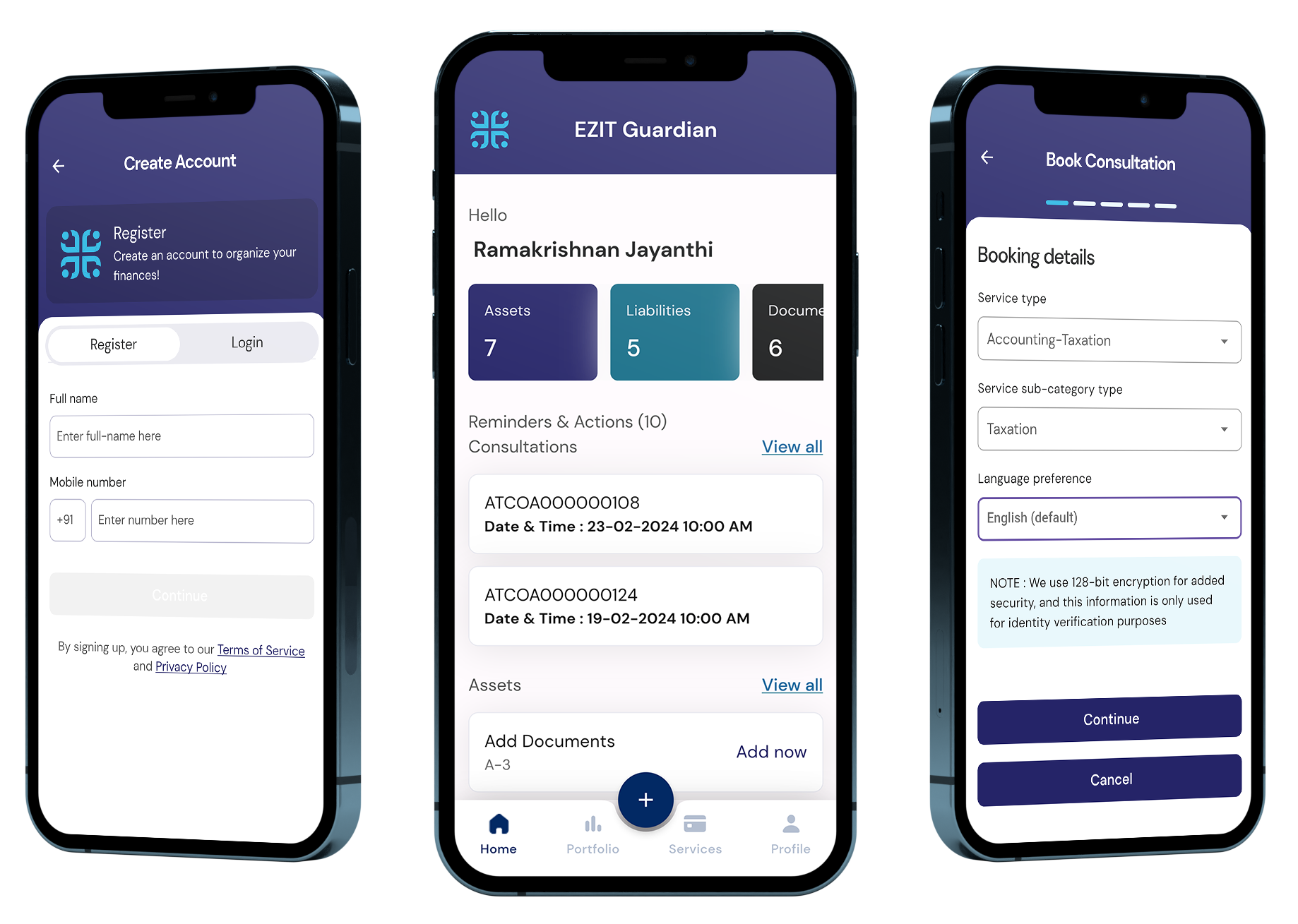TL;DR
Challenging a will in India involves challenging its validity based on specific legal grounds such as lack of mental capacity, undue influence, or improper execution. The process requires filing a probate petition, presenting evidence in court, and can be lengthy and costly. Successful challenges may result in will modifications or invalidation, while unsuccessful attempts can strain family relationships and potentially leave the challenger with nothing.
The Foundations of Will Creation in India
Before delving into the intricacies of challenging a will, it’s crucial to understand the basics of will creation in India. A will is a legal document that outlines how a person wishes their assets to be distributed after their death. In India, the Indian Succession Act of 1925 governs the creation and execution of wills for most citizens, with some exceptions for specific religious communities.
For a comprehensive guide on creating a legally valid will, check out our article on “How to Write a Legally Binding Will in India“.
Valid Reasons for Challenging a Will's Legitimacy
Not all dissatisfaction with a will’s contents is grounds for a legal challenge. Indian law recognizes specific reasons that can make a will contestable:
- The will-maker’s mental state was compromised during the will’s creation.
- Someone exerted undue pressure or manipulated the will-maker.
- The will shows signs of tampering or forgery.
- The will wasn’t properly signed or witnessed according to legal requirements.
- Evidence suggests the will-maker didn’t fully understand or approve the will’s contents.
- A more recent, valid will has been discovered.
Understanding these grounds is crucial before considering a will contest. For more information on the importance of a well-drafted will, read our article on “Why Having a Will is Crucial for Your Family’s Future”.
Navigating the Legal Path to Contest a Will
Challenging a will in India involves several steps:
- Gathering substantial evidence to support your claim.
- Initiating a probate petition to start the legal process.
- Sending a formal legal notice to the will’s executor.
- Filing a suit in the appropriate civil court if the issue remains unresolved.
- Participating in court proceedings, which may involve presenting evidence and witness testimonies.
- Awaiting the court’s decision, which could take months or even years.
This process requires patience, resources, and strong legal guidance. It’s advisable to consult with a legal expert specializing in probate law before proceeding.
The Ripple Effects of Challenging a Registered Will in India
Contesting a will can have far-reaching consequences that extend beyond the courtroom:
- Financial implications: Legal proceedings can be expensive, involving lawyer fees, court costs, and potential expert witness expenses.
- Time commitment: Will contests often stretch over extended periods, demanding significant time and emotional energy.
- Family dynamics: These legal battles can strain relationships, potentially causing long-lasting rifts within families.
- Uncertain outcomes: While a successful challenge might result in a larger inheritance, an unsuccessful one could leave you with nothing, especially if the will contains a no-contest clause.
Given these potential impacts, it’s crucial to carefully weigh the pros and cons before deciding to contest a will.
Strategies to Minimize Will Contests
While it’s impossible to completely prevent someone from challenging your will, there are steps you can take to reduce the likelihood:
- Ensure your will is properly drafted and executed, following all legal requirements.
- Consider including a no-contest clause in your will.
- Openly communicate your intentions to family members to avoid surprises.
- Regularly review and update your will to reflect your current wishes.
- Explore the option of setting up a trust in addition to or instead of a will.
For more tips on estate planning, check out our guide on “Estate Planning Essentials: Securing Your Family’s Future”.
The Importance of Professional Legal Guidance
Given the complexities involved in contesting a will, seeking professional legal help is crucial. An experienced probate lawyer can:
- Assess the strength of your case.
- Guide you through the intricate legal process.
- Represent your interests in court.
- Facilitate negotiations for potential settlements.
Remember, each will contest is unique, and outcomes depend on specific circumstances and evidence. Whether you’re considering challenging a will or want to create one that’s less likely to be contested, professional legal advice is invaluable.
Conclusion
Challenging a will in India is a complex process that requires careful consideration. While it can be a means to address perceived injustices in asset distribution, it also comes with significant costs, both financial and emotional. By understanding the grounds for contestation, the legal process involved, and the potential implications, you can make informed decisions about your estate planning or about challenging a will you believe is unfair or invalid.
This knowledge empowers you to protect your rights and ensure that the true wishes of your loved ones are respected. Remember, prevention is often better than cure. By creating a clear, legally sound will and communicating openly with your family, you can significantly reduce the likelihood of future will contests and ensure a smoother transfer of your legacy.
How EZIT Guardian Can Assist
At EZIT Guardian, we simplify the will-making process:
- Our experts explain all legal terms in plain language
- Our team of experts guide you through each step of creating your will
- We offer regular will reviews to keep your document up-to-date
- Our experts can answer any questions about will terminology
Don’t leave your family’s future to chance. Contact EZIT Guardian today to create a clear, legally sound will. Download the EZIT Guardian app from the Google Play Store & App Store today to schedule a consultation and take the first step to start securing your legacy.


